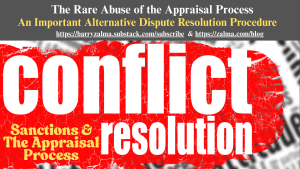What is Fifth Amendment right?
What is Fifth Amendment right?
noun. an amendment to the U.S. Constitution, ratified in 1791 as part of the Bill of Rights, providing chiefly that no person be required to testify against himself or herself in a criminal case and that no person be subjected to a second trial for an offense for which he or she has been duly tried previously.
Why is Amendment 9 important?
The Ninth Amendment tells us that the existence of a written constitution should not be treated as an excuse for ignoring nontextual rights, but it also tells us that the advocates of these rights cannot rest on ancient constitutional text to establish their existence.
What is the 9th amendment simplified?
The Ninth Amendment of the United States Constitution states that the federal government doesn’t own the rights that are not listed in the Constitution, but instead, they belong to citizens. This means the rights that are specified in the Constitution are not the only ones people should be limited to.
What does the 10th amendment mean for dummies?
The Tenth Amendment prevents the federal government from trying to expand its powers beyond the powers granted by the Constitution. If a power is not granted, it belongs to the states or the people.
What is the seventh amendment in simple terms?
The Seventh Amendment (Amendment VII) to the United States Constitution is part of the Bill of Rights. This amendment codifies the right to a jury trial in certain civil cases and inhibits courts from overturning a jury’s findings of fact.
What is the 8th amendment do?
Most often mentioned in the context of the death penalty, the Eighth Amendment prohibits cruel and unusual punishments, but also mentions “excessive fines” and bail.
How does the 22nd amendment limit the president?
“”No person shall be elected to the office of the President more than twice, and no person who has held the office of President, or acted as President, for more than two years of a term to which some other person was elected President shall be elected to the office of the President more than once. Oct 8, 2021
Why is the 16th Amendment significant?
The Sixteenth Amendment, ratified in 1913, played a central role in building up the powerful American federal government of the twentieth century by making it possible to enact a modern, nationwide income tax. Before long, the income tax would become by far the federal government’s largest source of revenue.
What did the 26th Amendment do?
Twenty-sixth Amendment to the Constitution Passed by Congress March 23, 1971, and ratified July 1, 1971, the 26th amendment granted the right to vote to American citizens aged eighteen or older.
Can you serve more than 2 terms as president?
The amendment was passed by Congress in 1947, and was ratified by the states on 27 February 1951. The Twenty-Second Amendment says a person can only be elected to be president two times for a total of eight years. It does make it possible for a person to serve up to ten years as president.
Can a president run again after 1 term?
The amendment prohibits anyone who has been elected president twice from being elected again. Under the amendment, someone who fills an unexpired presidential term lasting more than two years is also prohibited from being elected president more than once.
Can DC vote in federal elections?
The Constitution grants each state voting representation in both houses of the United States Congress. As the federal capital, the District of Columbia is a special federal district, not a state, and therefore does not have voting representation in Congress.
What does the 17th Amendment do?
Passed by Congress on May 13, 1912, and ratified on April 8, 1913, the 17th Amendment modified Article I, Section 3, of the Constitution by allowing voters to cast direct votes for U.S. senators. Prior to its passage, senators were chosen by state legislatures. Feb 8, 2022
What happens if the President is found incompetent?
In case of the inability of the President to discharge the powers and duties of the said office, the said powers and duties shall devolve on the Vice President, until the inability be removed.
What is my Fourth Amendment?
The Fourth Amendment to the United States Constitution prohibits unreasonable searches and seizures. It requires law enforcement to first obtain a search warrant before a search may be performed.






